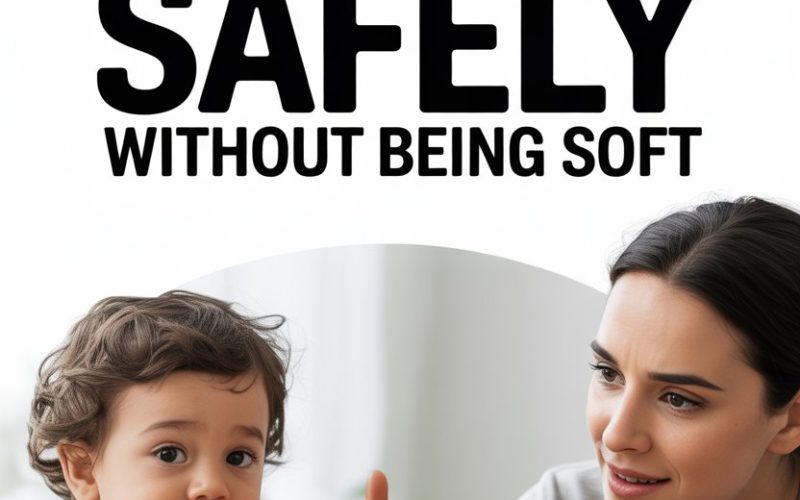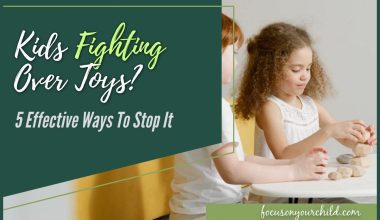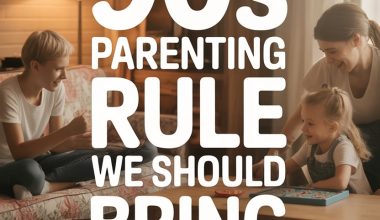Parenting might not come with a manual, but it definitely comes with unsolicited advice from your neighbour, your mother-in-law, and yes—even your dentist.
Caught between “gentle” and “no-nonsense,” many parents wonder if it’s possible to raise respectful, confident kids without feeling like a human marshmallow or, on the flip side, a drill sergeant.
Good news: it absolutely is.
Let’s talk about how to keep your kids safe, set firm boundaries, and still enjoy their company—even on a Monday.
Clear Boundaries Are Your Best Mate
Children are hardwired to test limits, sometimes with the determination of a sleep-deprived barrister. Setting crystal-clear rules isn’t harsh; it’s the ultimate act of love.
Rules give children the security of knowing what’s expected, which saves them from wandering into metaphorical traffic. Or actual traffic.
Explain your expectations using everyday language. “We don’t play with scissors” beats “Scissors are not a toy due to safety concerns,” by a mile. Keep it simple, specific, and unambiguous.
And when your child inevitably asks “Why?” (for the 17th time that morning), answer honestly, but don’t feel obliged to write a dissertation.
Consistency Isn’t Just for Skincare
A rule is only as good as its follow-through. If bedtime is 8pm, then yes, even when your child claims existential dread at 7:59, the rule stands. Consistency builds trust and teaches children that boundaries are reliable.
According to Harvard’s Center on the Developing Child, predictable environments help children develop self-control and emotional regulation.
Are you going to be perfectly consistent every day? Of course not. If you find yourself negotiating over broccoli at 8:15, welcome to the club.
But hitting that mark most of the time proves to your kids that your word means something.
Firm Doesn’t Mean Unkind
It’s possible to say no with a smile, and to offer a cuddle after enforcing a consequence. The most effective parents manage to project warmth even as they’re laying down the law.
A calm, even tone communicates that you’re in charge, you care, and you’re not about to crumble when met with crocodile tears.
This approach isn’t just good manners; it models emotional regulation. When you respond to boundary-pushing with kindness instead of yelling, children learn that holding firm doesn’t require losing your cool.
Natural Consequences Work Harder Than You Do
Ever noticed how a child who refuses to wear a coat on a chilly morning seems to understand “cold” far better after one brisk walk to school? Harnessing natural consequences can save your vocal cords and teach lessons that stick.
Whenever safety isn’t at risk, let the world do some of the teaching.
Spilled milk means mopping up. Forgotten lunch means a rumbling tummy. Your job? Provide empathy and guidance, but resist the urge to rescue from every discomfort.
According to psychologist Dr. Laura Markham, natural consequences foster responsibility and resilience in children.
Safety Isn’t About Bubble-Wrapping Childhood
Keeping your children safe doesn’t mean eliminating every possible risk—unless you fancy yourself living in a padded cell, and even then, good luck. Instead, focus on teaching risk assessment.
Invite your children to think aloud: “The slide is wet—what might happen if you go down?” Encourage them to weigh their choices and anticipate results.
By fostering safety awareness, you empower kids to make smart decisions, even when you’re not right beside them. A little scraped knee now beats a big mistake later.
Apologise When You Mess Up (Because You Will)
Even the most steadfast parent will lose their cool occasionally. Maybe you barked an order, or let a poorly-timed “Because I said so!” slip through your lips.
Admitting your errors models humility and accountability. A simple “I’m sorry for raising my voice; I should have spoken more calmly” goes a long way toward building mutual respect.
This isn’t about abdicating authority. It’s about showing your children you’re human, and that making things right matters in your family.
Communication Is a Two-Way Street
Dictating orders without listening is just a fast track to mutiny. Invite your children to share their feelings and opinions—even if those opinions involve why they believe ice cream is an appropriate breakfast food.
Regularly check in: “How are you feeling about the new bedtime?” “Was that rule fair?” You don’t have to change your mind, but hearing your child out lets them feel valued and heard.
According to research published by the American Psychological Association, children whose parents engage them in decision-making tend to develop higher self-esteem and better problem-solving skills.
Avoid Empty Threats Like the Plague
There’s the classic: “If you don’t clean your room, no TV until you’re thirty.” Children are masters at sniffing out bluffs. When consequences are unrealistic, they lose all meaning—and you risk losing credibility.
Only offer consequences you’re prepared to enforce. If you say, “No pudding until your peas are gone,” you’d better have the willpower to see it through. (Your secret stash of chocolate biscuits doesn’t count.)
Pick Your Battles and Keep Perspective
Some days, it feels like every action requires correction, from sock-throwing to questionable fashion choices.
Ask yourself: does this behaviour put my child’s safety, health, or values at risk? If not, perhaps it’s time to let it slide.
Save your energy for the hills worth dying on—like car seat straps, kindness to siblings, or basic hygiene. You don’t want every dinner to turn into a standoff over the precise angle of a fork.
Teach Self-Advocacy and Critical Thinking
Safe parenting isn’t all about rules; it’s about raising children who think for themselves. Encourage your child to speak up when something feels off, ask questions, and respectfully disagree—even with you.
Model critical thinking by discussing decisions out loud: “We always wear helmets on bikes because it protects our heads if we fall.” Invite them to suggest alternatives or improvements to household rules.
This empowers your child to make safe choices, even when you’re not there to play lifeguard.
Self-Care Isn’t Selfish
Let’s address the myth that perfect parenting requires martyrdom. You can’t show up as a clear-minded, calm parent if you’re running on fumes and caffeine.
Take time for yourself—even if it’s just a shower without an audience or a cup of tea that’s not stone cold.
Self-care models healthy boundaries for your kids. You’re teaching them that everyone’s needs matter, including yours. If guilt tries to sneak in, remember: you can’t pour from an empty teapot.
The Myth of the “Soft” Parent
There’s a persistent rumour that warmth equals weakness. In reality, firmness without relationship leads to rebellion, and warmth without limits leads to chaos.
The magic happens in the middle. Dr. Diana Baumrind’s old-but-gold research highlights that authoritative parenting—high warmth, high expectations—yields children who are both confident and well-behaved.
It’s not softness to empathise, hug, or joke with your child as you stand your ground. It’s that balance that prepares children to thrive in a world that isn’t always gentle.
When You Need Backup
Sometimes, all the calm talk in the world can’t cut through a child’s anger or anxiety. If you’re struggling to maintain safety and boundaries—maybe meltdowns are constant, or you’re seeing behaviours that concern you—don’t hesitate to reach out.
Chatting with a paediatrician, a school counsellor, or a local parenting group can bring new strategies and support into the mix.
No one is meant to parent alone, and asking for help is far from “soft.” It’s smart.
Raising Safe, Strong Kids—and Surviving It
Balancing strength and safety in your parenting isn’t about finding some magical formula. It’s about showing up, holding firm, and loving fiercely—even on the rough days.
Clear boundaries, consistent follow-through, and a dash of empathy go a long way toward raising children who are both safe and resilient.
And if today’s best accomplishment is not stepping on a LEGO barefoot, count it as a win. The rest? That comes with time, laughter, and possibly a good chocolate biscuit.




